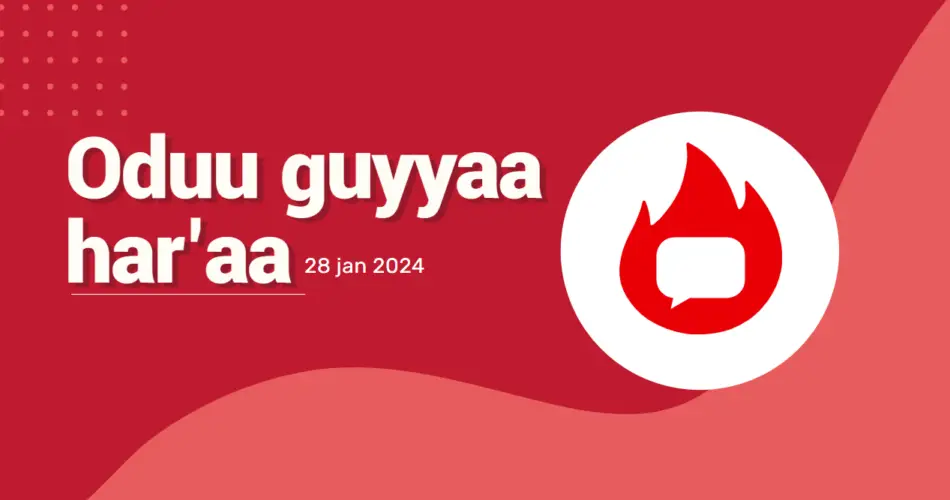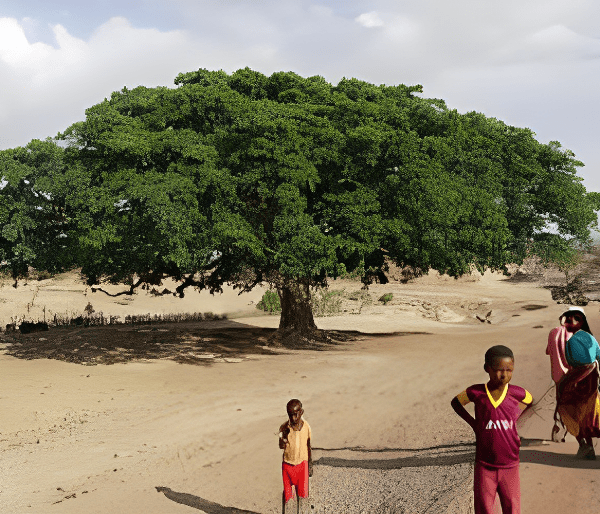Oduu guyyaa har’aa 28 jan 2024
Table of Contents
Oduu guyyaa har’aa: Mayor and media experts
Regarding the ad Victory and the commemoration and the role of the media, the Saas City Administration consulted with media and communication leaders, experts, and journalists. During the discussion, Mayor of AD Saad and Chabi mentioned that the victory of AD showed the height of Ethiopians and is a rich history that connects yesterday with today and today with tomorrow. The ad Victory Memorial is not just a project, Mayor Saad said; it is a great historical heritage that tells of the national identity.
She added that the victory of Adwa is not only historical but also a source of pride, emphasizing the responsibility of every citizen to promote this common history and teach it to the next generation. The ad Victory Memorial is not a project; it is our history. It tells of our past, where we were, how big we Ethiopians are, and the foundation we have. It goes beyond history; it is also our ancestors’ bone and blood. Mayor Saad highlighted the importance of commemorating this significant history and noted that the City Administration has now taken on this responsibility.
Victory is a symbol of Ethiopian bravery and unity, a source of pride for the entire black people, and it should be commemorated at the appropriate level. Madan Chab added that media professionals should fulfill their responsibility so that the great victory of Adwa is commemorated in a way that befits its historical significance. The memorial has a substantial content that can be passed on to the next generation and unite all Ethiopians.
Media experts were urged to create a grand narrative that unites the nation. The memorial provides an opportunity to showcase the victory to the world, not just for Ethiopians but as a source of pride for all. The commemoration has created a favorable environment to promote the victory at the international level. The head of the Prosperity Party’s office in Ad reiterated the importance of properly narrating the victory of Adwa, emphasizing that the Ador Victory commemoration is a good opportunity to build a common identity that includes all Ethiopians.
Oduu guyyaa har’aa: PP BIDS FAREWELL TO VICE PRESIDENT DEMEKE
Prosperity Party held its Central Committee meeting and discussed various issues. During the meeting, the party passed decisions on different matters, and the replacement of its vice president, Mea McCorn, is among them. The party bid farewell to the previous vice president upon his replacement by Miss Gona, who was serving as a member of the executive committee.
The Democratic Party said that for the past 30 and more years, he served in different positions in politics, faced many challenges, and gained valuable insights. In a letter, he shared what he learned in the times and situations where he engaged in leadership roles, emphasizing the strength of the nation and the country. He expressed appreciation for building suitable leadership at every level and advised leaders to listen to their heads and coach their colleagues.
The newly elected vice president of Prosperity Party, Thas G, expressed his gratitude for Mea McCorn’s contribution to the party and the country. He acknowledged a long acquaintance with Mea, expressing thanks for the coaching and experience shared. He also expressed gratitude for the contributions made by Mea in the party and for the country. DEA called for leaders at each level to work with commitment and provide support to their successors.
Oduu guyyaa har’aa: PARTNERSHIP AGREEMENT
Ethiopia’s Innovation and Technology Minister, Bela, International Labor Organization Country Director for Ethiopia, Juuti, Somalia, Sudan, and South Sudan, Alexo Mendo, Information Technology Park Corporation CEO, Hok Ahmed, and Somali Regional State Innovation and Technology Bureau Head, Fatar Muhammed, signed a partnership agreement to enhance the promotion, inclusion, and protection of refugees and their host communities in the geek economy.
The objective is to support the Innovation and Technology Ministry in the development and adoption of a five-year digital inclusion strategy that considers integration of refugees, a group that can contribute and benefit from the digital transformation taking place in the country.
Speaking during the signing ceremony, Innovation and Technology Minister Beleta said the agreement signifies a profound commitment to a future where technology empowers, not excludes, and where refugees and host communities can thrive together in the digital economy. The signing of this MOU signifies a profound commitment to a future where technology empowers and where refugees and host communities can thrive together in the digital economy.
He pledged to continue working hand in hand with the ILO to further strengthen the integration of refugee concerns into international digital inclusion strategies, leveraging the ILO’s expertise in promoting decent work and social dialogue in the digital economy. International Labor Organization Country Office Director for Ethiopia, Alexo Mendo, on his part, said ILO supports the ministry’s 5-year digital inclusion strategy to integrating refugees, leveraging the Prospects initiative. We from the ILO believe these agreements will harness the potential of the digital economy to generate jobs, foster economic inclusion, and ultimately benefit both forcibly displaced individuals and the communities that host them.
He further said ILO will collaborate with the Information Technology Park Corporation to offer internship and entry-level jobs for young graduates in the ICT sector and digital economy. ICT HAB will also be established in Fafan Zone of Somali Region, providing connectivity, digital skills training, and co-working space to empower refugees and host communities. He added the partnership agreements will also enhance access to jobs and improved living conditions for refugees and youth in the host communities. The government of Netherlands will extend financial support for the implementation of agreements, it was indicated.
Oduu guyyaa har’aa: EAST AFRICA PASTORALIST EXPO
The East Africa Pastoralists Expo, which brought together more than 1,200 pastoralists, kicked off at the Millennium H in Addis Ababa. Speaking at the opening ceremony, the Minister of Irrigation and Lowland Areas Development, AA Muhammad, emphasized that the pastoral community transcends national boundaries and is the essence of regional integration in the Greater Horn of Africa and East Africa.
The borderless nature of pastoralism is not just a way of life but a model for regional cooperation. The East Africa Pastoralist Expo marks a landmark recognition and celebration of the pastoral communities that are integral to our region. These communities, transcending national boundaries, symbolize a seamless blend of culture, economy, and environmental stewardship in our region. Identified pastoralist clusters such as Carja, Moale, Mandera, and others are home to millions who share languages, cultures, and livelihoods.
Policies need to embrace and support the cross-border dynamics of pastoralism, recognizing their potential in strengthening regional ties. Aisha Pastoral Estates in the lowland has substantially contributed to the collective existence in the region. The minister called on country representatives, development partners, and the private sector to actively support climate-resilient development initiatives for pastoralism in the region.
Speaker Tag Chafo of the House of People’s Representatives emphasized the need to strengthen regional ties to address the problems facing pastoral communities sustainably. The East African Pastoralist Expo aims to strengthen development ties and share experiences between neighboring countries’ pastoralist communities. When countries in the region stand together and cooperate, they can address challenges like climate change and borders.
The people of Ethiopia, along with neighbors from Kenya, Sudan, Djibouti, South Sudan, Somalia, and Eritrea, attended the Expo, showcasing fraternity. Ethiopia welcomes collaboration with neighboring countries and believes in regional relationships. The Expo demonstrated how countries can grow together, reflecting the strength of the region.
The Minister of Agriculture, Water, Fisheries, Livestock, and Hydraulic Resources of Djibouti, Muhammad Ahmed, highlighted the importance of transforming pastoralism into agriculture for the Future Vision 2035. Irrigation is key to this transformation due to climate change affecting lowland rainfall. The Expo aims to ensure shared and mutual development among countries in the region by mitigating challenges faced by pastoral communities and will run for the next five days.
this is all the Oduu guyyaa har’aa for today see tomorrow with an new exclusive in sha alah.





Great article! I appreciate the clear and insightful perspective you’ve shared. It’s fascinating to see how this topic is developing. For those interested in diving deeper, I found an excellent resource that expands on these ideas: check it out here. Looking forward to hearing others’ thoughts and continuing the discussion!